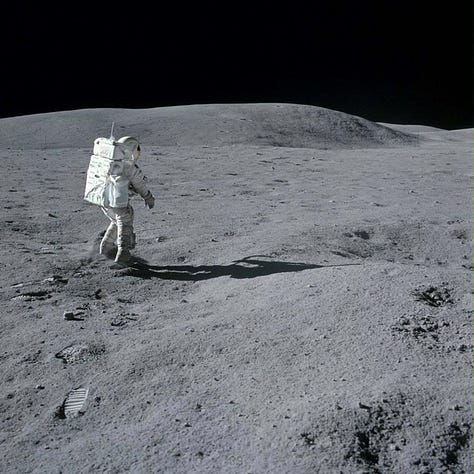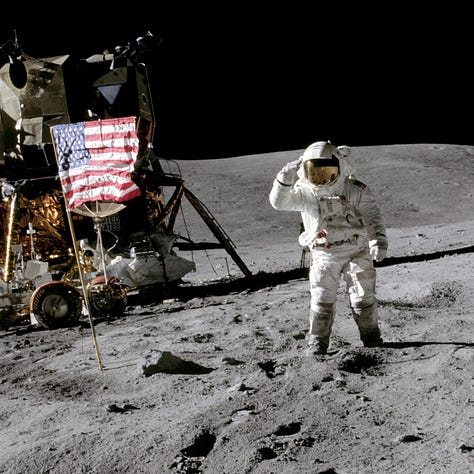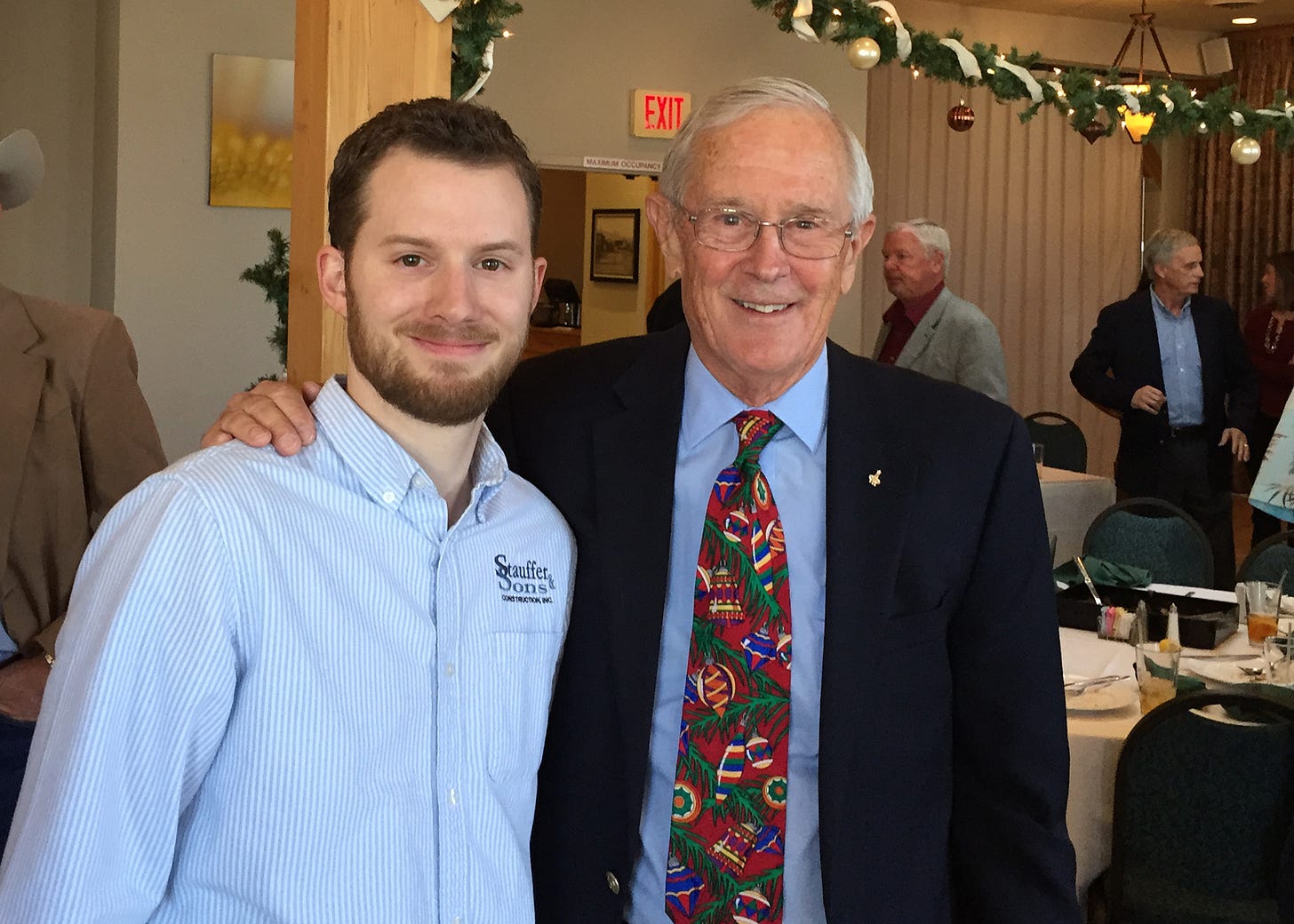Meeting an Apollo 16 Astronaut Who Went to the Moon and Back
"We had everything the American dream says you need for happiness: money, position, fame, yet we were empty inside. A trip to the Moon didn't give me peace and contentment."
A few years ago, I met an Astronaut who walked on the Moon: Charlie Duke, a man who spent over 20 hours on the Moon’s surface during the Apollo 16 mission, collecting rocks and driving a lunar rover.
USAF Brigadier General Charles “Charlie” Moss Duke Jr. started his career in the Air Force as a fighter pilot, just like my grandfather did. He flew some of the same planes, including the T-33 Shooting Star trainer and the F-86 Sabre… but he really took it to the next level by becoming a test pilot and then, ultimately, an Astronaut.
It was funny: he never set out to be an Astronaut. It just happened as part of the logical sequence in his Air Force career.
“I’d had a great career as a fighter pilot and then a test pilot, and then got selected as [an] astronaut.”
Contrary to popular opinion, there wasn’t a whole lot of fame or fortune in becoming an Astronaut.
“We did not volunteer for fame or fortune. A trip to the Moon was no different than going to [fly] anywhere. I was a lieutenant colonel back in those days, and I got paid just like every lieutenant colonel, but a trip to the Moon was a little extra.
It’s, [in] military terminology, TDY: ‘temporary duty,’ and they paid you per diem, and back then, it was $25 a day. And I filled out a travel voucher that said ‘Kennedy [Space Center] - Moon, Moon – Pacific [Ocean].’ That turned out to be $275.”
However, government quarters and meals were furnished, so they deducted that part. I said I’d settle for a nickel a mile, but government transportation was provided also, so anyway, we ended up with a very small check. I would’ve given them my entire pay for that year, for that adventure.”
As it turned out, being an Astronaut involved some fairly mundane tasks. In addition to driving the lunar rover, he was responsible for becoming an amateur geologist.
“Lesson number one in geology [is]: ‘Pick up one of every color, dummy.’ And up on the Moon, there were black ones, white ones, and gray ones, and it didn’t take any rocket scientist to figure out what rocks to pick up on the Moon. So, we picked up a lot of rocks…”
In fact, he helped collect over 200 pounds of Moon rock for scientific analysis.
In addition to being famous for simply being one of only 12 men to ever walk on the Moon, Duke became somewhat infamous for being the man who caught Rubella and exposed fellow Astronaut Ken Mattingly to it, preventing Mattingly from going on the Apollo 13 mission (as shown in the movie “Apollo 13.”)
I really appreciated meeting General Duke and was pleased, as a fellow Christian, that he shared the ironic experience of riding on a rocket and going all the way to outer space, exploring the heavens, and yet not becoming enlightened or finding God.
“It was also the 25th anniversary of the Air Force in 1972, and it was ‘Happy Birthday Air Force’ from the lunar surface and a great feeling for me, [but] it was not a spiritual experience - I did not feel close to God.”
In fact, he said, peaking so early in life caused a tremendous dilemma for him and his wife afterward.
“I was out there being a success, [but it] got so bad in our marriage that Dotty was on the verge of suicide and in clinical depression and despair, and yet we had everything the American dream says you need for happiness: money, position, fame, all of the things that we strive for, and yet we were empty inside. …a trip to the Moon didn’t give me peace and contentment.”
I try to think about this all the time in my own life, as I consider my own journey and how wild it was to get married at the early age of 20, have 5 kids in 6 years, and then finally finish college at the age of 33, and ask myself “Well, now what?”
What happens next when you finally finish the hardest thing you’ve done so far? Where do you go from there?
Thank you, General Duke, for your bravery during man’s most incredible period of exploration so far and for being open and vulnerable about how you can go all the way to the Moon and back, and it still won’t solve your problems or make you a better person, or give you peace.
I salute you!







What an experience. Where did you get to meet him?